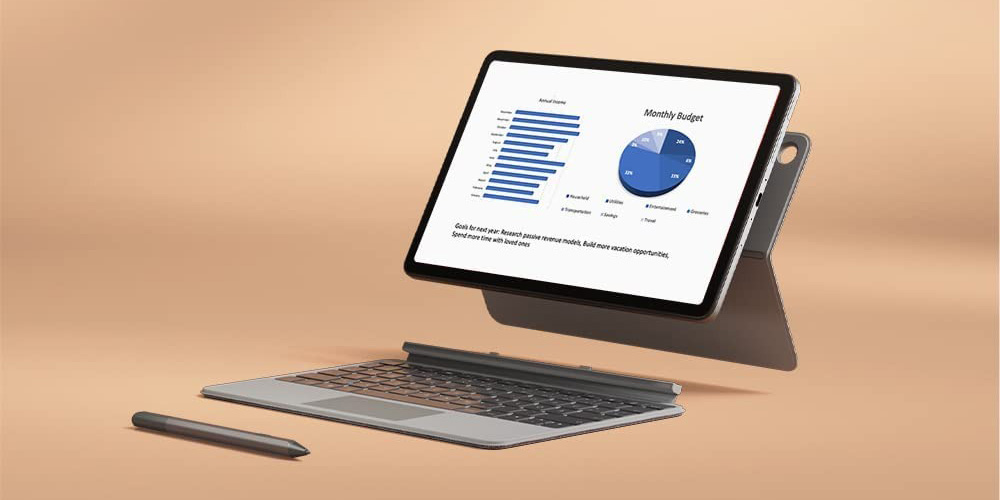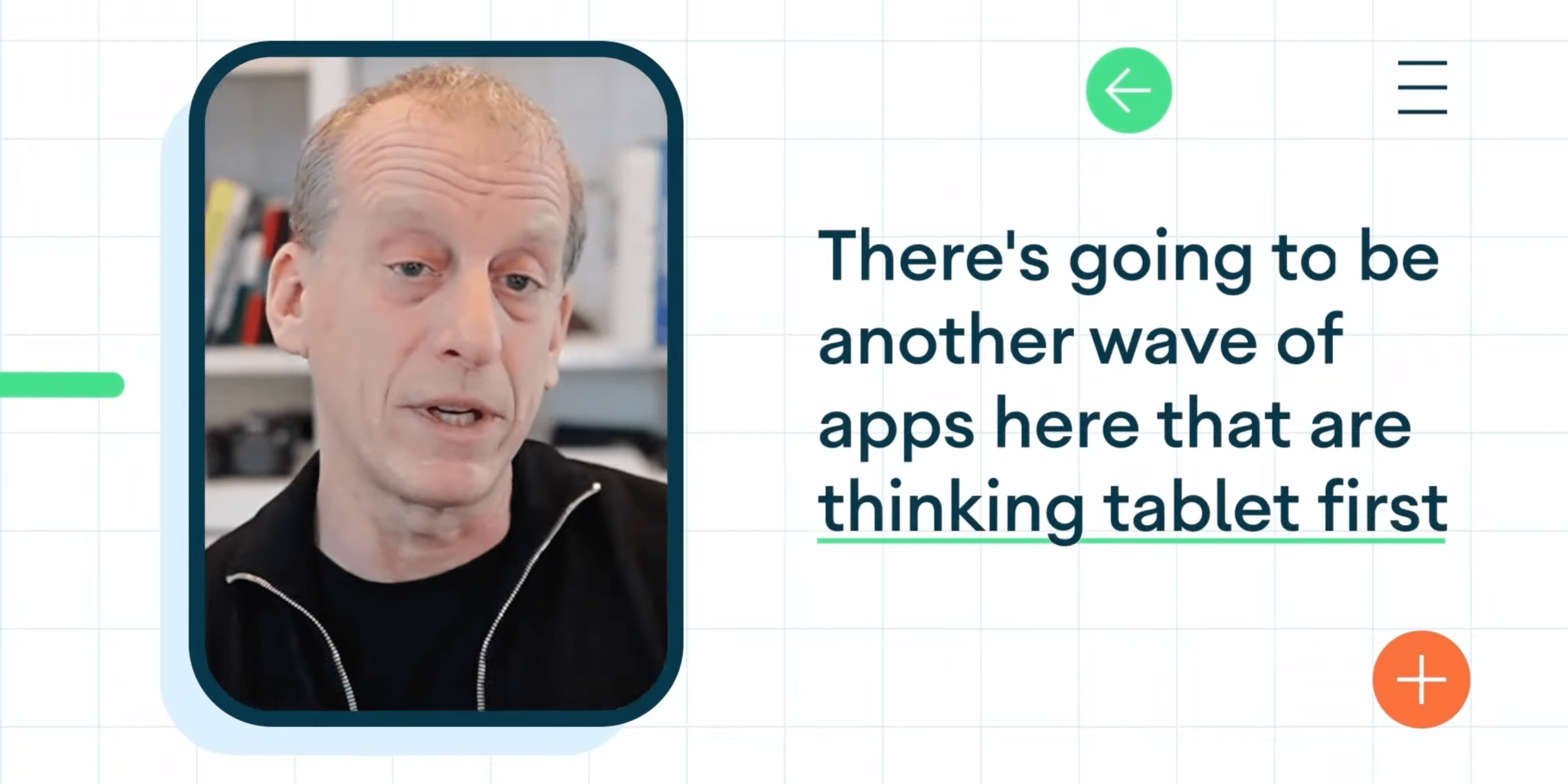
Amazon’s consumer electronics division makes a lot of hardware. I’m sure the strategy is more than trying everything and seeing what sticks, but it sometimes feels like that from the outside. It’s easy for products to get lost in the fray, but one that shouldn’t be is the Fire Max 11.
9to5Google has a rebooted newsletter that highlights the biggest Google stories with added commentary and other tidbits. Sign up to get it early in your inbox, or continue reading 9to5Google Log Out below:
This is a $229.99 Android tablet with an 11-inch (2000 x 1200, 213 PPI) screen powered by an octa-core MediaTek processor (2x Arm Cortex-A78 up to 2.2 GHz and 6x A55 up to 2 GHz) with 4GB of RAM and 64GB of storage. Battery life is rated at 14 hours, and there’s a microSD card slot.
For $100 more, you get a keyboard with back cover/stand and stylus. The product page advertises using the former with the Microsoft 365 (Office — still a dumb rebrand) suite of apps, with productivity being a clear focus of the $329.99 model. We can’t speak to the quality and performance just yet, but this is such a compelling product on paper.
In fact, it’s everything that Google wanted when it called “Android Tablets” the “future of computing.” The company has said:
We believe that the future of computing is shifting towards more powerful and capable tablets. We are working to deliver the next chapter of computing and input by launching seamless support across our platforms and hero experiences that unlock new and better ways of being productive and creative.
Google
Google wants to see stylus-first applications, while it believes that large (touch)screens not “physically connected to a keyboard” will result in unforeseen use cases. It has explicitly raised the possibility of tablets overtaking laptop sales with price undoubtedly being the key factor.
The belief is that tablets started to be just much better for things beyond consumption, and were being used for creativity and productivity and there was a need for more screens and devices to support that.
Google
On the software side, Google has been optimizing Android since 12L, with work continuing in 13 and 14. Over 50 first-party apps have been updated to support large screens, including foldables, for a night and day difference from a few years ago.
On the hardware front, the Pixel Tablet is launching next month with the best Google has to offer (with the exception of the camera) in one package. It’s a long time coming, but I don’t think this is what the company had in mind with Android Tablets as the future of computing.
Rather, the Google Play Store-less Fire Max 11 fits that vision more by being incredibly affordable and by nature of Amazon having the largest retailer presence. A physical keyboard is still the gold standard for office productivity, and the Pixel Tablet doesn’t offer a first-party equivalent. Meanwhile, I remain surprised that Google didn’t announce an official stylus, instead relying on general USI 2.0 support.
This is all because Google thinks of the Pixel Tablet as a smart home product and a Nest Hub successor. As such, it leaves an opening for another model. A Pixel Tablet Pro would fit that bill, but much more interesting is a Pixel Tablet A-Series that only offers an okay media consumption experience so that it can provide an equally okay productivity experience with a keyboard accessory. Going affordable rather than premium is how Google fulfills that Android Tablets ambition, battling Chromebooks in the process, of its OS running on the successor to laptops.
The Pixel Tablet is $499. An A-Series tablet priced around $349 with an included keyboard, at the least, would be the sweet spot.
Charitably, the Google tablet we will soon have is only 49% productivity-oriented, thanks to optimized Workspace apps (and 51% Nest Hub + media consumption device). We haven’t seen the company try for a cheap, large screen that runs Google Docs well. The Pixel line of A-Series phones is quite good, and I think Google could hit it out of the park with tablets if it really tried.
From 9to5Google
TicWatch Pro 5 Review: A fast but bloated Wear OS 3 watch that lasts for days
Messages Magic Compose beta starts rolling out: RCS only, priority for Google One subs
Hands-on: TP-Link’s Matter-compatible smart plug is literally plug-and-play
Google starts rolling out Search Generative Experience (SGE) in preview
Here’s the Google Pixel Tablet in an unannounced shade of black
What (else) is happening
Chrome Remote Desktop on Android swaps to web app, for better or worse
Google Home 3.1 rolling out with new light controls, tablet UI tweaks
Google Home’s animated camera notifications on Wear OS rolling out in June
Leaked Motorola ‘Razr Ultra’ ad confirms everything we already knew [Video]
Pixel At a Glance will show ridesharing status
Google updates Recorder with dual-column Pixel Tablet and Fold UI
Top comment by Justin Landis
To make this whole thing work Google needs to bring a more desktop-like experience to Android. I would argue that I would rather use an Android desktop device over another type of desktop device because of the UX. Currently Android isn't as productive as Desktop environment. Google could stop fighting the merging of its os's and make chrome os more mobile and Android more desktop -like. In 2023 it is quite possible that the world is ready for truly mobile desktop environment. As this article mentions we have already seen large steps in UX development in the way to making this a reality. It's not there yet and it will need lots more work.
The pixelbook will be supported until June next year... Google is rumored to be developing a 100 percent in house precessor to be released with the Pixel 9. This could be great opportunity to do something special with hardware and software.
A desktop Android device to replace the pixelbook in autumn 2024? Unfortunately I'm probably setting myself up for disappointment but I really hope Google makes this happen.
As mobile and productive as chrome os is, it is still primarily relies on legacy desktop UX, in my opinion. With a bunch more work Google could really bring mobile and desktop together in a way that no other company really can.
Google doesn't make ChromeOS devices right now so there is nothing to cannabalize. In theory, Google could do something spectacular.
Android 14 Beta 2.1 rolling out with many Pixel bug fixes
Google posts Pixel Watch factory and OTA images, requires invite-only debug adapter
From the rest of 9to5
9to5Mac: Final Cut for iPad is a step in the right direction, but it highlights iPadOS limitations
Electrek: Ford will add Tesla plug to its electric vehicles in surprising move
FTC: We use income earning auto affiliate links. More.






Comments